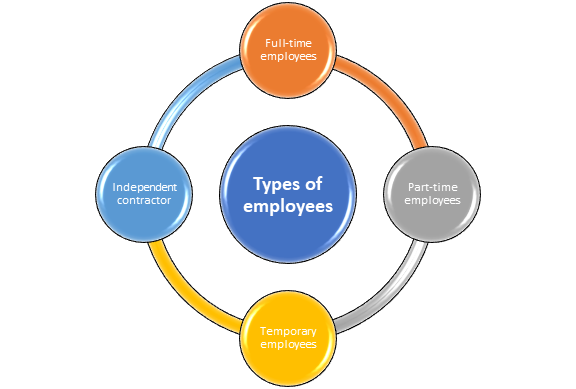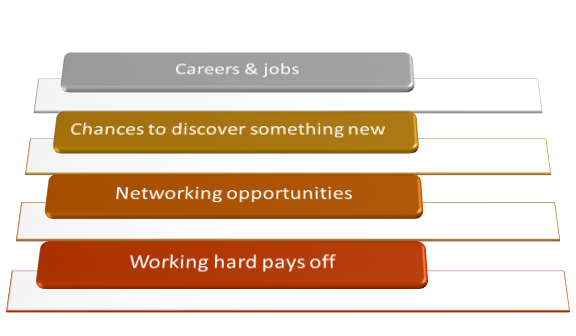What is job?
A job is any activity that someone engages in to earn money to meet their fundamental necessities. It can be part-time or full-time, and it may be temporary also.
Instead of a salary with benefits, a person may be paid an hourly rate or a fixed payment. They may need to gain specific job-related abilities, but not all positions necessitate additional training or a specialist degree.
Moreover, a corporation wants its workers to do their work well for regular income and be accountable for their assigned tasks.
A job is also a long- or short-term contract between an employee and an employer. A corporation, for example, may hire a local contractor to finish an office refurbishment project. They agree on payment arrangements, and the job is concluded once the project is completed.
Highlights
- A job is any act that a person engages in to generate income to meet their basic needs.
- The job can be part-time or full-time, and it can be temporary also.
- Corporations want their employees to do a great job in exchange for a steady paycheck.
Frequently Asked Questions (FAQs)
What are the various types of jobs?
In the modern age, many of us have multiple occupations. For example, a person can be a housewife, a parent, or an employee, and they are all forms of employment.

Source: © Rawpixelimages | Megapixl.com
Profession
This type of employment necessitates a university degree. Professionals include dentists, lawyers, librarians, doctors, architects, pharmacists, engineers, geologists, teachers, physicists, university professors, etc.
Trade
These are manual labour jobs. Hairstylists, butchers, carpenters, bakers, auto mechanics, and plumbers are just a few examples. A person must generally finish a period of practical training and a course to become a tradesperson.
There are administrative and technical employees and professions and trades, some of which require a university degree.
There are a variety of different jobs that are unskilled and do not require any formal qualifications. Retail assistants, fruit pickers, farm labourers, maids, cleaners, and janitors are a few examples.
What are the key characteristics that identify employees inside a company?
In general, there are four sorts of employees, each with its own set of rules.
Full-time employees
It's usually an at-will relationship with subordination. Employees must adhere to the employer's commands and instructions and work a minimum of 40 hours each week. Employers may offer various benefits, including paid vacation, health, and, in some instances, retirement benefits. After completing a W4, the employee is paid weekly, biweekly, or monthly, with income taxes withheld by the employer.
In addition, full-time employees have the right to:
- Public holidays
- Annual vacation
- Parental leave
- Personal time off
- Superannuation guarantee
- Long service leave
- Period of notice if a job is terminated
Part-time employees
Part-time workers are defined as those who work fewer than 35 hours per week in most states. Part-time employees, such as full-timers, generally – though not always – have a defined schedule and are paid by the hour.
Part-time employees, like full-time employees, must adhere to all corporate regulations and rules. In addition, under the Fair Labour Standards Act and the Occupational Safety and Health Administration, they are entitled to the same safeguards.
However, the employer has the last say on whether they receive benefits such as sick and vacation time, health insurance, and paid holidays. As a result, some firms provide no benefits, others prorate benefits, while others offer the same advantages as full-timers.
Part-timers make up a significant portion of a firm's labour pool. Hence the larger the organisation, the more liberal it is with them.
Temporary employees
They might perform full- or part-time duties, although they are usually paid by the hour. Temporary workers are often hired either directly by a firm or through a recruitment company. The person who engages is also the one who pays the employees.
Temporary workers can be recruited for less than a day, a week, a month, or much longer, such as replacing maternity leave or meeting a seasonal need. Nonetheless, temporary workers are typically hired for both a short and lengthy amount of time.
After a probationary term, a good match may result in the employer asking the temporary worker to become a permanent employee, either part-time or full-time. A temp-to-perm role is one in which the temporary aspect of the work turns permanent. Traditional labour rights apply to them, although they usually do not receive any benefits.
Independent contractor
As stated in the terms and conditions of a service agreement, an independent contractor is at-will and has no subordination.
The contractor is self-sufficient and does not require orders or instructions but must comply with the client's general requests (not an employer). There is no benefit from the client, and the contractor is not paid on a cyclical basis but instead after the project or service.

Source: Copyright © 2021 Kalkine Media
What impact does a job have on your career?
A career is a long-term professional path that an individual might choose based on their interests. It is the road that a person takes to attain professional goals and desires, including a certain level of training or education.
A person's career may last a lifetime, and they may work for various employers in the field of their choice as they grow through it. The following are some of the ways that a job can affect your career:
Careers & jobs
A career is made up of all the jobs you've held, regardless of whether they're related or not. You could work for the same company for years in the same department. Alternately, you may spend your life doing a variety of seemingly unconnected tasks.
Chances to discover something new
Every job teaches you something that you can use in the future. You'll develop a wide range of skills, expertise, and knowledge as well.
Networking opportunities
With each employee, you expand your professional network and community. In addition, you can provide yourself with the ability to reach out to these contacts throughout your career if you maintain a professional and fruitful relationship with all your clients and co-workers.
Working hard pays off
A pleasant attitude, consistently high-quality work, and a desire to learn can set you apart, win you employment referrals, and open new doors.

Source: Copyright © 2021 Kalkine Media
 Please wait processing your request...
Please wait processing your request...